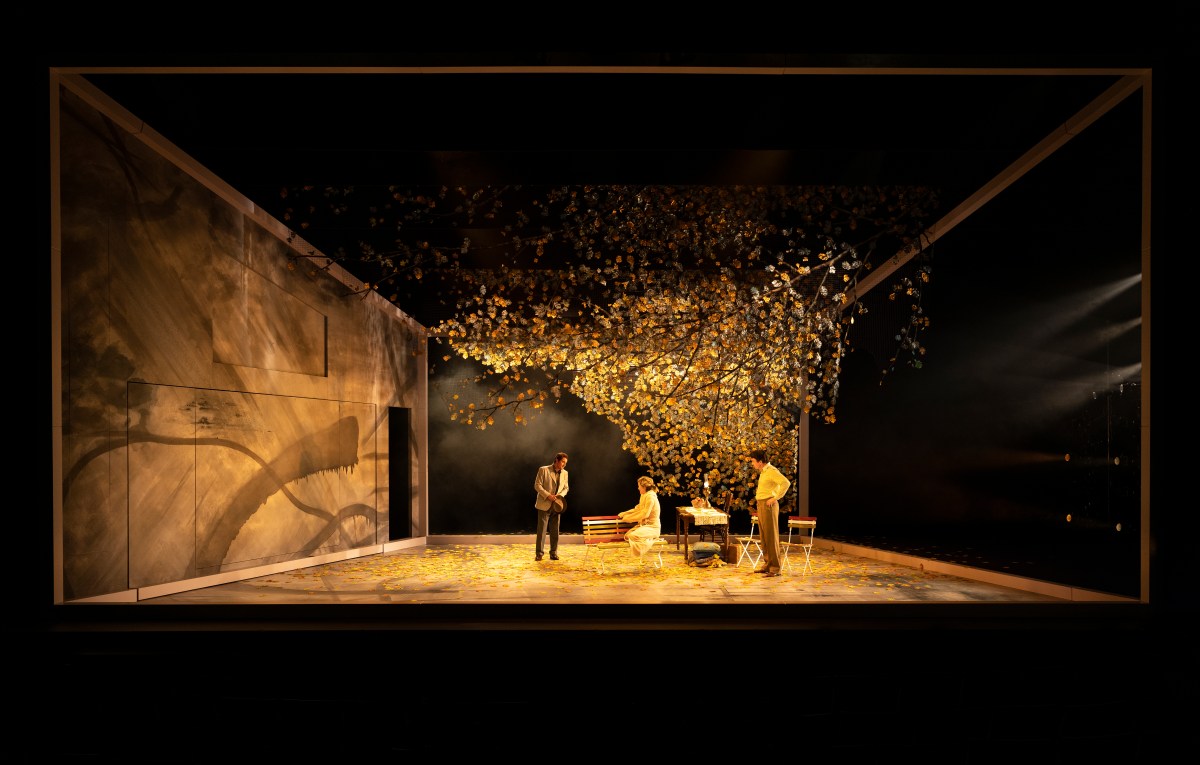There’s a moment in Anthony Weigh’s new play Sunday – about the Melbourne modernists who formed the Heide set of painters, gallerists, patrons and bohemians – when a character observes their experience is like being in a Chekhov play. And this well-crafted and ambitious play, described by the Melbourne Theatre Company as ‘an audacious fantasy’, does bring some of the elegiac notes of Chekhov’s The Cherry Orchard into its repertoire.
Like The Cherry Orchard, it’s a play about inheritance, if only the inheritance of that most ineffable kind: the inheritance of art, friendship and finally of the love that encouraged its characters – based on the historical personages of Sunday and John Reed and Sidney Nolan – to live, love and make art in ways they saw as truly modern. As in Chekov’s play, it shows that the march of progress is unsentimental and what love remembers, art forgets.
The story of the Heide set has become a popular legend inspiring numerous artistic adaptations in the way that Ned Kelly inspired the iconic paintings of the play’s chief antagonist, Sidney Nolan. Anyone interested in a historical account of the period need look no further than Modern Love by Kendrah Morgan and Lesley Harding, a meticulously researched and beautifully evocative biography of John and Sunday Reed that made use of hours of taped interviews of the artists who lived through the period.
But Sunday’s director Sarah Goodes has been astute in delivering a vision that is more than just the factual record. Speaking to The Age, Goodes said, ‘The thing that theatre gives you is it’s this great meeting with actors and artists and audiences’ imagination. So you give them shards of things and go “imagine the rest”. The imagined account of the Heide set in Weigh and Goode’s version is really the story of Sunday Reed, played with electric vivacity by Nikki Shiels in an iconic performance, and the role Shiels as Sunday plays in ‘birthing’ modern Australian painting.
Modernist painting is unique in the story of art history for its generous embrace of outsiders, non-painters who knew where to look or, in some cases, where not to look. In an early scene where she meets Nolan, Reed wryly observes that she’s not much as a painter, but she can see talent in his early work and offers him the space and freedom to develop it. As proof that she knows exactly where to look, she teases Nolan about playing the role of the ruthless Australian painter as a role as self-consciously fashioned as the tell-tale stain on his shirt.
It’s the beginning of a flirtation that Nolan cements by leaving his wife and child and coming to live with the Reeds. John (played with patrician grace by Matt Day) turns a blind eye to Nolan’s growing passion for his wife, and the resulting ménage à trois sets up a drama of modern love within the conversation about modern art.
The strength of the play’s writing is to deliver just enough of the real story to pique the audience’s curiosity about its imagined possibilities, and this technique is deft, dextrous and undeniably stylish. It sets up Sunday as the childless mother of Australian modernism, spurned by the paintings she says are like children to her and the painters whose love story is the story of art over love.
The play keeps the three central figures as its focus and is nimbly elusive about some of the facts: the roles of Joy Hester and some of the painters and lovers and are muted, and Sunday Reed’s lineage as a Baillieu is played for laughs. It’s a strategy that sets up the central trio for maximum drama and Sunday herself for maximum pathos as a Madame Ranevsky in The Cherry Orchard seeing the sun set on the old world of her influence and rise on a new world that has forgotten the role she played in creating it.
Read: Theatre review: Blue, Belvoir St Theatre
This play is an epic of living history with a central character as indispensable to Australia’s post colonisation mythology as Pearl Cunningham to The Summer of the Seventeenth Doll. It is also features beautiful set design by Anna Cordingley, costume design by Harriet Oxley, and sound and lighting design by Jethro Woodward and Paul Jackson that means, regardless of where you choose to look, or where not to look, you will see a sumptuous production that shows the best of what the Melbourne Theatre Company has to offer.
Sunday by Anthony Weigh
Southbank Theatre, Melbourne Theatre Company
Director: Sarah Goodes
Set Design: Anna Cordingley
Costume Design: Harriet Oxley
Lighting Design: Jethro Woodward
Cast: Nikki Shiels, Matt Day, Josh McConville, Ratidzo Mambo, Joshua Tighe
Sunday will be performed until 18 February 2023





